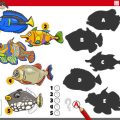Choosing the Best Scottish Fishing Locations
When it comes to planning a Scottish fishing holiday, the first crucial step is selecting the right location. Scotland boasts a rich tapestry of fishing spots, each offering its own unique charm and challenges. From the wild, wind-swept lochs of the Highlands to world-renowned salmon rivers like the Tweed and Spey, you’ll find opportunities for anglers of every level. Knowing where to cast your line isn’t just about picking a famous name; it’s about matching your skills and interests with the character of the water.
Iconic Scottish Fishing Spots at a Glance
| Location | Type | Main Species | Best For |
|---|---|---|---|
| River Tweed | River | Salmon, Trout | Classic fly fishing & seasoned anglers |
| Loch Lomond | Loch (Lake) | Pike, Perch, Trout | Mixed methods & scenic family trips |
| River Dee (Aberdeenshire) | River | Salmon | Spring fishing & traditional ghillie experience |
| Loch Awe | Loch (Lake) | Brown Trout, Pike, Char | Big fish hunters & adventure seekers |
| Isle of Harris Lochs | Loch (Island) | Sea Trout, Salmon | Wild solitude & experienced anglers |
| The Forth & Clyde Canal | Canal | Pike, Roach, Bream, Perch | Accessible coarse fishing & beginners |
Selecting the Right Destination for Your Style and Skill Level
If you’re a seasoned fly fisher in search of legendary salmon runs, look towards the River Tweed or Spey. These rivers offer not only historical prestige but also well-managed beats and expert local ghillies who know every bend and pool. For those seeking variety or travelling with family, Loch Lomond or Loch Awe provide excellent coarse and game fishing against breathtaking backdrops—perfect for combining angling with walking or boating. If remote adventure is more your style, the Outer Hebrides’ lochs promise wild trout and sea trout in near-isolation.
The key is honest self-assessment: consider your preferred method (fly, spinning, bait), target species, need for amenities or guides, and willingness to travel off the beaten path. Don’t underestimate Scotland’s weather either—some locations can be challenging in early spring or late autumn. A little research goes a long way to ensure your trip matches your expectations and skill set.
Essential Licences and Local Regulations
Before you pack your rods and head north, it’s crucial to understand the legal side of angling in Scotland. Unlike many places in England and Wales, Scotland has its own unique set of fishing laws that every visiting UK angler should respect. Here’s a practical breakdown to keep your holiday smooth and above board.
Understanding Scottish Fishing Licences
In Scotland, there’s no national rod licence required for freshwater fishing (unlike the Environment Agency licence in England). However, you must always have permission from the landowner or fishery to fish any water—this is usually arranged by purchasing a day or week permit from local angling clubs, estates, or tackle shops. For salmon and sea trout, permits are strictly enforced and often pricier due to conservation measures.
Quick Reference: Types of Permits
| Type of Fishing | Permit Required? | Where to Obtain |
|---|---|---|
| Coarse Fishing | Yes – local permit | Angling clubs, tackle shops |
| Trout Fishing (Lochs & Rivers) | Yes – local permit | Fishery owners, online booking platforms |
| Salmon & Sea Trout | Yes – special permit | River boards, estate offices |
Local Rules Every Angler Should Know
The rules can vary dramatically between regions and even individual waters. Common regulations include catch-and-release policies (especially for salmon), seasonal closures, bait restrictions (for example, fly-only stretches), and limits on the number of rods per angler. Always check signage at the water’s edge or consult with local authorities before casting off.
The Importance of Conservation
Scottish waters are globally renowned for their wild stocks—particularly Atlantic salmon—but these populations are under increasing pressure. Responsible anglers play a vital role in conservation by following catch limits, using barbless hooks when requested, and releasing fish unharmed where required. Many rivers now enforce mandatory catch-and-release for all salmon at certain times of year; this not only protects future stocks but also ensures you’re doing your bit as a guest on these historic waters.
Treat every loch and river with respect: leave no litter, report invasive species sightings, and engage with local communities to support sustainable angling. By navigating licences properly and championing good practice, you’ll help preserve Scotland’s legendary fishing for generations to come.

3. Gear Up for Scottish Waters
When it comes to fishing in Scotland, being properly kitted out is half the battle won. The country’s famously unpredictable weather and wide variety of fish species mean that your usual gear from back home might not always cut it. Here’s some practical advice for UK travellers looking to make the most out of their Scottish fishing holiday.
Tackle: Choose Wisely for Diverse Waters
Scottish waters range from fast-flowing Highland rivers to deep lochs and rugged coastlines, each demanding different tackle. For trout and salmon fishing, a 9-10ft fly rod with floating and sinking lines covers most scenarios. If you’re planning on sea fishing, bring a sturdy spinning rod and reels suitable for both shore and boat work. Don’t forget a selection of flies or lures, as local favourites often outperform generic patterns—pop into a local tackle shop for up-to-date recommendations.
Recommended Tackle by Species
| Species | Rod Type | Main Line | Essential Extras |
|---|---|---|---|
| Trout (Loch/River) | 9ft #5-6 Fly Rod | Floating/Sinking Fly Line | Klinkhammer Flies, Buzzers |
| Salmon | 10ft #7-8 Fly Rod or Double-Handed Spey Rod | Sinking Tip Line | Cascade & Ally’s Shrimp Flies |
| Pike | 8-9ft Spinning Rod | 20lb Braid | Wire Trace, Large Soft Plastics |
| Mackerel/Sea Species | 9-10ft Beachcaster or Spinning Rod | 15-25lb Mono/Braid | Mackerel Feathers, Shads |
Clothing: Prepare for All Four Seasons in a Day
If there’s one thing seasoned anglers agree on, it’s to expect all weather conditions—sometimes within a single afternoon! Layering is key: start with moisture-wicking base layers, add an insulating mid-layer, and top off with a waterproof jacket and trousers. Don’t forget quality wellies or waterproof boots; boggy ground is part and parcel of the Scottish landscape. A warm beanie and fingerless gloves are indispensable even in summer.
Pro Packing Tip:
- Packing a set of lightweight waterproofs can save your day when sudden showers roll in.
Other Essential Kit for the Scottish Experience
- A reliable map or GPS device—some remote beats have patchy mobile signal.
- Midge repellent—those wee beasties can be relentless near water from late spring onwards.
- A sturdy landing net (ideally rubberised to protect fish).
- A thermos flask—nothing beats a hot cuppa while waiting for that bite!
The right kit keeps you comfortable and increases your chances of landing that memorable catch. Don’t skimp on preparation; Scottish fishing is as much about enjoying the environment as bagging fish. Properly geared up, you’ll be ready to face whatever the weather—or the water—throws at you.
4. Booking Accommodation and Travel
Finding the right base for your Scottish fishing holiday is just as important as choosing the river or loch. Many seasoned anglers know that a well-located, comfortable stay can make all the difference after a long day by the water. Here’s how UK travellers can secure angler-friendly accommodation and smoothly arrange travel within Scotland.
Tips for Finding Angler-Friendly Lodging
- Look for Specialist Fishing Lodges: Many rural B&Bs, inns, and guesthouses cater specifically to anglers. They often provide drying rooms for wet gear, packed lunches, early breakfasts, and even permit advice.
- Self-Catering Options: Cottages and lodges near prime fishing spots offer flexibility—ideal if you’re planning to cook your own catch or want privacy.
- Onsite Access: Some hotels have direct access to rivers or private beats. Always ask about exclusive rights or discounted permits for guests.
| Accommodation Type | Benefits for Anglers | Potential Downsides |
|---|---|---|
| B&B / Guesthouse | Local advice, hearty breakfasts, social atmosphere | Limited privacy, set meal times |
| Fishing Lodge | Angler facilities, guides on-site, group-friendly | May be pricier in peak season |
| Self-catering Cottage | Total privacy, flexible meals, family-friendly | No daily housekeeping, must arrange own food |
| Pubs/Inns | Camaraderie, pub meals, local character | Noisy at weekends, limited facilities for gear |
Arranging Travel Within Scotland
- Car Hire: For most rural destinations and remote lochs, hiring a car is highly recommended. It gives you flexibility with early starts and late finishes—essential for making the most of daylight hours during summer.
- Public Transport: Scotland’s trains and buses are reliable between major towns (think Inverness or Fort William), but options dwindle in remote areas. Plan ahead—some bus routes run only once or twice daily.
- Bicycle and Walking: If you’re staying close to the action (for example, near Loch Leven), cycling or walking between beats is a scenic and eco-friendly option.
- Taxis & Local Lifts: In more isolated areas, local taxi firms or even your host may offer lifts to rivers or lochs—never hurts to ask!
Rural Access Hints for Anglers
- Check Road Conditions: Single-track roads are common in the Highlands; always allow extra time for travel and check weather reports before setting out.
- Permits & Permissions: Not all waters are open access—confirm where you’re allowed to park and fish. Respect local signage and landowners’ requests.
- Packing Essentials: A good OS map or GPS app is invaluable when venturing off-grid. Mobile signal isn’t guaranteed in every glen!
The Local Touch: Book Early & Ask Questions
The best angler-friendly spots often book up fast during peak season (April–September). Secure your accommodation early and don’t hesitate to contact hosts directly—locals are usually happy to recommend guides, tackle shops, or lesser-known hotspots nearby. With some forward planning and these insider tips, you’ll spend less time worrying about logistics and more time enjoying Scotland’s legendary waters.
5. Best Times to Fish in Scotland
Getting your timing right can make all the difference when planning a Scottish fishing holiday. With its dramatic seasonal changes and distinct fish runs, Scotland offers unique angling experiences throughout the year. Understanding these patterns is crucial for UK travellers looking to maximise their chances of landing a memorable catch.
Seasonal Highlights
Scotland’s fishing calendar is shaped by both weather and fish migration. Here’s what you need to know:
| Season | Main Species | Highlights |
|---|---|---|
| Spring (March–May) | Salmon, Brown Trout | Early salmon runs begin, especially on famous rivers like the Tay and Tweed. Brown trout become active as waters warm up. |
| Summer (June–August) | Sea Trout, Wild Brown Trout, Pike | Long daylight hours are perfect for loch fishing and late evening dry fly action. Sea trout run peaks in June and July. |
| Autumn (September–October) | Salmon, Grayling | Prime time for Atlantic salmon as they return to spawn. Many rivers see their biggest fish at this time. |
| Winter (November–February) | Grayling, Pike | Pike fishing can be excellent on lochs; grayling offer sport on select rivers where permitted. |
Fish Runs: Timing Your Trip for Success
The most sought-after Scottish species—Atlantic salmon—have well-defined seasonal runs that vary by river. For example, the River Dee sees strong spring runs, while the Spey is famed for summer action. Sea trout typically run from late spring into summer, with peak months differing by location. Always check local records or consult a knowledgeable ghillie for up-to-date insights.
Pro Tip: Book Early During Peak Periods
If you’re targeting a specific species or dream of fishing a renowned beat, book accommodation and permits well in advance—especially during peak salmon months (May–September). Popular rivers fill up quickly with both locals and travelling anglers from across the UK.
Summary Table: Quick Guide to Prime Fishing Times
| Species | Best Months |
|---|---|
| Atlantic Salmon | April–October (varies by river) |
| Brown Trout | March–September |
| Sea Trout | June–July |
| Pike | Year-round (best in winter/early spring) |
The key takeaway? Scotland rewards anglers who do their homework. Plan around the seasonal highlights and local fish runs, and you’ll give yourself the best chance of an unforgettable Scottish fishing holiday.
6. Making the Most of Local Expertise
One of the most rewarding aspects of planning a Scottish fishing holiday is tapping into the wealth of local knowledge that can truly elevate your experience. While it’s tempting to go it alone, enlisting the help of experienced guides, ghillies, or even joining local angling clubs can make a world of difference—especially if you’re keen to unlock Scotland’s best-kept secrets.
Why Rely on Local Guides and Ghillies?
Local guides and ghillies have spent years, sometimes decades, mastering their waters. They know every twist in the river, the best times for casting, and the subtle changes in weather or water conditions that impact fish behaviour. Here are some compelling reasons to consider their services:
| Benefit | Description |
|---|---|
| Expert Knowledge | Guides offer up-to-date insight into where fish are biting and which flies or baits work best. |
| Access | Certain beats or lochs may only be available through local contacts or clubs. |
| Safety | Navigating remote Highland terrain can be tricky; a guide ensures you stay safe and within legal boundaries. |
| Culture & Etiquette | Learn about local traditions, etiquette on the water, and how to respect private land rights—a must in Scotland. |
Getting Involved with Local Angling Clubs
If you’re after a more immersive experience, many towns and villages boast angling clubs that welcome visitors. Joining one not only gives you access to exclusive waters but also connects you with passionate anglers who are more than happy to share tips over a pint at the local pub. Don’t underestimate the value of these connections—they often lead to invitations onto lesser-known stretches or private beats.
How to Find the Right Help
- Contact local tourist offices for recommended guides or ghillies.
- Search online forums or social media groups dedicated to Scottish angling.
- Check club websites for visitor membership options or day tickets.
Insider Tip:
If it’s your first time fishing a particular river or loch, even hiring a guide for just half a day can pay dividends for the rest of your trip. Their advice on tactics and locations will set you up for success—and may even help you land that legendary Scottish salmon!
7. Soaking Up Scottish Culture Off the Water
If you’re travelling all the way to Scotland for a fishing holiday, it would be remiss not to immerse yourself in the country’s rich culture and legendary hospitality during your downtime. Beyond the lochs and rivers, Scotland is brimming with experiences that will elevate your trip from memorable to truly unforgettable.
Sampling Scottish Hospitality
Nothing beats the warmth of a Scottish welcome. Whether you’re staying in a family-run B&B, a local inn, or a traditional bothy, take time to chat with your hosts. Scots are known for their friendliness and will often share stories, recommendations, or even a dram of whisky by the fire. Don’t be shy about joining locals in the pub—there’s no better place to learn about village life or hear some live folk music.
Savouring Local Food & Drink
Scottish cuisine has come on leaps and bounds in recent years. From hearty breakfasts to fresh seafood straight off the boat, there’s plenty to whet your appetite. Here’s a quick guide to must-try dishes and where you might find them:
| Dish/Drink | Description | Where to Try |
|---|---|---|
| Haggis, Neeps & Tatties | A classic Scottish meal of savoury pudding, turnips and potatoes | Pubs and traditional restaurants across Scotland |
| Cullen Skink | Smoky fish soup from the North-East coast | Seafood restaurants, especially in coastal towns |
| Scottish Salmon | Freshly caught, often smoked or grilled | Lochside hotels and fine dining spots |
| Single Malt Whisky | World-famous spirit with regional variations | Distillery tours or local pubs (don’t miss Speyside or Islay) |
| Cranachan | A dessert of raspberries, cream, oats & whisky | Dessert menus throughout Scotland |
Sights & Experiences Not to Miss
Your fishing holiday can be perfectly complemented by exploring some iconic Scottish sights. Here are some top picks for UK travellers:
- Castles & Heritage Sites: Visit Eilean Donan Castle or Stirling Castle for a taste of history.
- Scenic Drives: Take a detour along the North Coast 500 for jaw-dropping views.
- Museums & Art Galleries: Pop into local museums for insights into Highland traditions and fishing heritage.
- Wildlife Watching: Keep an eye out for red deer, golden eagles, or even dolphins on the west coast.
- Tartan & Tweed Shopping: Pick up authentic Scottish textiles as souvenirs from village shops.
A Final Word: Making Memories Beyond the Rod & Reel
The secret to an unforgettable Scottish fishing holiday lies as much in what happens off the water as on it. Take time to soak up the culture, sample new flavours, and explore the landscapes—you’ll return home not just with fishing tales but with memories that last a lifetime.

